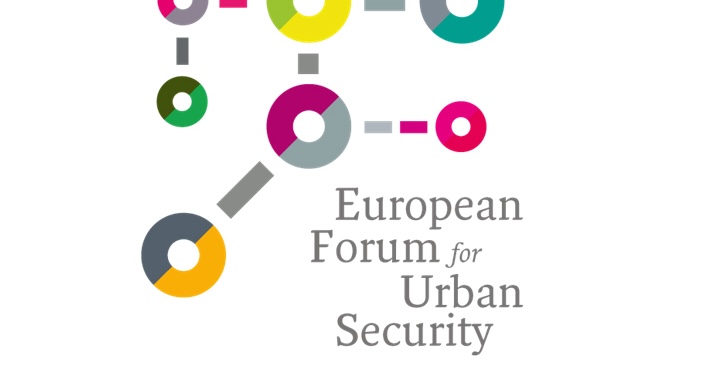Resolution – Rotterdam, The Netherlands, 30 November 2022
The members of Efus’ Executive Committee, gathered in Rotterdam, call on national governments and European institutions to provide concrete political, legislative and financial support to local and regional authorities in Europe in preventing and tackling organised crime.
Organised crime is a global and multifaceted issue. It is increasingly violent and professional, with criminals operating like multinational businesses. By nature international, agile and capable of swiftly adapting and expanding, organised crime has a direct impact on local territories and is prevalent even in places that have long considered themselves safe. Networks supporting organised crime and more specifically those involved in drug and human trafficking demonstrate great agility and adaptability. Organised crime takes many forms and covers phenomena that can evolve in time, including, but not limited to: drug trafficking, money laundering, massage parlours, weapon trafficking, gambling, human trafficking, prostitution, public markets… Organised crime networks are sometimes active in more than one sector at a time.
The infiltration of illegal activities into the public sector and the creation of illegal markets have a direct impact on local territories’ economic and social health. As first witnesses and responders, local and regional authorities have the duty, and are mobilised, to protect their citizens as well as local administrative, economic and democratic processes against organised crime and its repercussions. Administrative power covers a wide range of measures that vary from a country to another – these can include shutting down a business, refusing a permit, preventing/prohibiting access to some places, or access to financial allowances. Local and regional authorities need support in the implementation of such measures.
***
Efus’ local and regional authorities welcome the recognition of their crucial role by the European Union. Organised crime operates across municipal, national and European borders. To sustainably fight it locally, synergies between local actors, including citizens, local and regional authorities, national governments and European institutions are crucial. Strategies must be thought out and implemented at the local, national, European and international levels, not only limited to the EU but also taking into account the neighbouring countries.
This implies that local and regional authorities look introspectively at whether they are already taking all measures available to them to address local organised crime related issues within their local prevention and security policy. Cities must, and can, analyse and question their own role, and take action – their actions complementing those taken at national and European level.
***
Now, we urge national governments and European institutions to make this cooperation happen, by operationalising it into concrete instruments of support: administrative, political, legislative and financial.
We welcome the measures taken at the European level to improve police cooperation and information exchange, with the adoption of the new EU Strategy to tackle Organised Crime in April 2021, and the tools put in place through the EU Directive on Asset Recovery and Confiscation and the European Network on the Administrative Approach. We acknowledge how this can reinforce a permanent framework to shape cooperation, and encourage local and European operational cooperation.
Here in Rotterdam, the Dutch government has expressed its support to cities in implementing projects to tackle infiltrations in the economy and local negative impacts induced by organised crime, including the prevention of youngsters’ recruitment. It committed to invest in public-private partnerships to prevent in particular drug trafficking. It is important that cities, in their struggle against organised crime, are supported by their national and regional governments. The Dutch government has been very much involved: the Minister of Justice recently stated a plan to tackle organised crime in the main ports and logistics hubs (for instance the hub for the flower trade), financially but also through its overall national approach to organised crime. In this spirit, national governments and European institutions must acknowledge organised crime as a priority and support cities, at the forefront of prevention and response to security issues arising from organised crime. This implies supporting multi-stakeholder cooperation and public-private partnerships, including training of the involved actors, a good example of which are the initiatives put in place in the port of Rotterdam.
Cooperation of all the involved partners, both public and private, through a multi-stakeholder approach must be encouraged and facilitated at the national and European level. Efus’ members have committed to use administrative measures to prevent criminals from using legal structures or developing their illegal activities on local markets.
***
Efus’ local and regional authorities reassert key principles of the Efus Manifesto:
- Local and regional authorities, citizens, civil society and the private sector should be involved in the prevention of and fight against organised crime;
- Local and regional authorities should be encouraged to combine social, economic and repressive measures to fight against organised crime. They must use all the measures available to them, in addition to the penal law, by using administrative and regulatory tools, as well as tools for prevention and education to legality;
- European institutions should involve local and regional authorities in European strategies for the prevention and fight against organised crime and encourage an administrative approach;
- Assets seized from organised crime networks should be recovered. This is essential to rebuild trust and a sense of justice in cities with major corruption. The social reuse of seized property can have a strong impact on the local community;
- Provisions made by EU law for seizing criminal assets and investing these in the community should be expanded.




